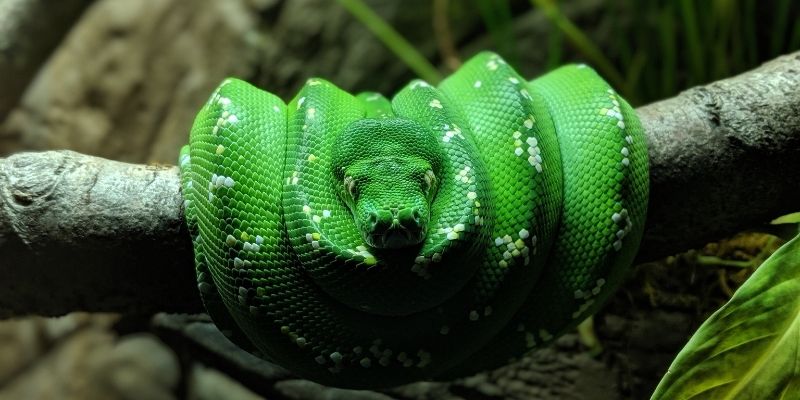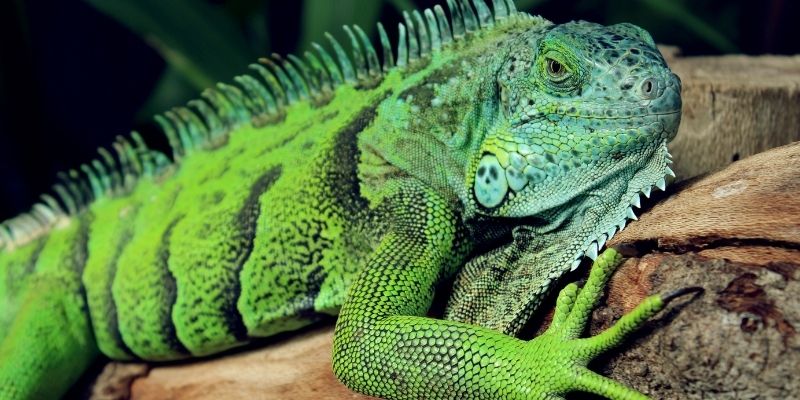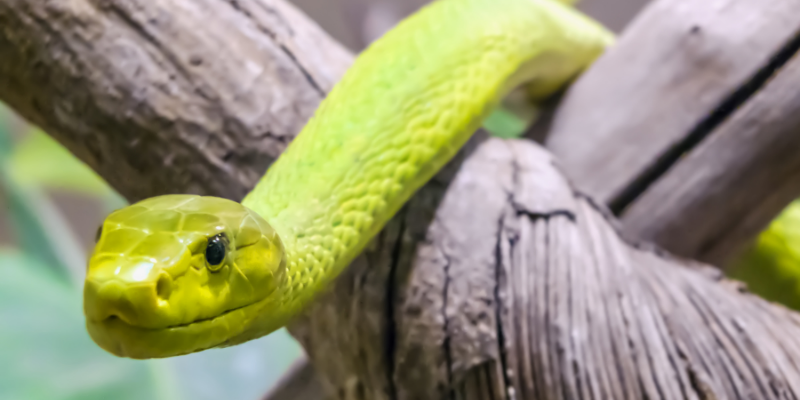What Does a Person Who Studies Reptiles Do?.
To maintain the existence of certain species around the world, dedicated professionals conduct in-depth research and implement conservation strategies. There are plenty of exotic and majestic species within the animal kingdom, and while reptiles may not be a favourite among everyone, they play an important role in the ecosystem.
The study of reptiles is called herpetology, and it involves conducting research on various species within the reptile family. Below, we will delve into what these animals are and what is involved in the study of reptiles, as well as the courses you can take to gain essential knowledge of reptile species.

What are Reptiles?
People who study reptiles eventually gain an in-depth knowledge of the creatures, but before that they need to grasp the basics. Reptiles are vertebrates that are differentiated by their skin, which will either consists of scales or bony plates. Some reptiles, though, have a combination of the two.
There are four main reptile groups, and they include:
- Turtles and Tortoises
- Snakes and Lizards
- Crocodiles and Alligators
- Tuatara (a primitive species that are found in a group of small islands near New Zealand)
Their skin type is one of the many features that identify them as reptiles, but their internal makeup also makes them standout against other animals, such as birds and mammals. People who study reptiles will know that these species’ are cold blooded because they don’t have regular internal body temperature.
You will not see any reptiles with fur or feathers, so they do not have any type of insulation that can keep them warm in cold climates. The only way they can feel heat is by placing themselves in the direction of the sun. Alternatively, in hot weather, they have to seek the shade to keep themselves cool as they don’t have sweat glands or the ability to pant.
Who Studies Reptiles?
As mentioned, herpetology is the term used for the study of reptiles, so a person who does this as a profession is known as a herpetologist. However, it is important to note that people who study reptiles can progress into various different roles, such as a lab researcher, a specialist in field studies, or a position in a zoo or a museum. Alternatively, you could use your knowledge to eventually teach about reptiles in a professional capacity.
A herpetologist, though, specifically focuses on the research of both reptiles and amphibians. Interestingly, the reason why studies included both of these species groups initially was because naturalists thought the two were very similar. The reality, though, is that reptiles and amphibians have plenty of differences, including:
- Internal makeup – Some skeletal features in reptiles differ to amphibians, and they have better respiratory systems as a result of better lung capacity
- Skin and claws – People who study reptiles will know that there are certain differences to the appearance of reptiles and amphibians. One is the fact that reptiles have claws and scales with dry skin, while most amphibians have clawless feet and moist skin
- Reproduction – When reptiles reproduce, they lay their shelled eggs on land as opposed to amphibians who lay soft eggs in water or areas where there’s plenty of moisture

What are the Roles and Responsibilities of a Herpetologist?
People who study reptiles complete this work to gain a strong understanding of the various species, how they behave, and how they contribute to the ecosystem. Not only is this work important to know the intricacies of the living things around us and how they affect the world, but also so that we can preserve their habitats.
A herpetologist spends their time conducting research in multiple areas, including the following:
- Behaviour
- Anatomy;
- Genetics
- Ecology
- Physiology
- Reproduction
- Health
Below, we have outlined some of the responsibilities of a professional who specialises in the study of reptiles.
- Once the research has been conducted, many herpetologists will analyse their data and publish their findings in journals or other academic fields
- Preserved museum samples are sometimes needed to be studied if you are focusing on the physiology and anatomy of the reptile species you are studying
- When it comes to the study of reptiles, a herpetologist will either conduct their research in laboratory settings or in the field
- In most cases, people who study reptiles professionally will have a lab assistant to administer direct care to the animals they are researching, but this responsibility will fall on the herpetologist if not
How Can I Learn More?
If you have a keen interest in reptiles and are considering a career that involves researching these species, or you already work in a zoo or volunteer for an animal charity and want to expand your knowledge, there are courses available. The Reptile Studies Level 3 Award (RQF) is an accredited course that is recognised and regulated by Ofqual.
By studying this course, you will gain an in-depth knowledge of reptiles, including their biological makeup, and the various conservation efforts being made across the globe. In total, you will be learning two units, which will cover:
- An introduction to reptile biology
- Understanding reptile behaviour
- Overview of reptile conservation
- Introduction to reptile care and welfare needs
A brief explanation of the individual units is below:
Unit 1: Reptile Biology, Behaviour and Conservation
- The work of people who study reptiles goes a long way in helping to prevent species from going extinct. This particular unit will hone in on the conservation efforts being made across the globe
- Reptiles display various behaviours, whether it be in relation to feeding, or a reaction to a specific situation. This part of your course will look at these behaviours;
Unit 2: Reptile Care and Welfare
- Each reptile species requires its own type of care and welfare, and this section of your study will explore this
- The course will also cover the importance of promotion when it comes to reptile welfare, of which you will gain a strong understanding of
Your course will be assessed through end-of-unit assignments, which will require you to demonstrate an in-depth knowledge of the theory learned during your study. Once you have successfully completed your study of reptiles, you will be issued with a Level 3 Award.

Flexible Online Study
Unlike traditional classroom learning, you will have the freedom and flexibility to complete your reptile course at your own pace and in your own time. This is because Stonebridge Associated Colleges is one of the UK’s leading distance learning providers, offering a wealth of online courses in wide-ranging subjects.
You can study the Reptile Studies Level 3 Award (RQF) from the comfort of your own home. As long as you have a computer/laptop and a stable internet connection, then you are able to study! You will be assigned a personal tutor who will provide you with the help and guidance you need to complete the course.
Also, you will have 24/7 access to all of your online course materials. Via our innovative online platform, you can fit your study time around your existing commitments.
Get Started Today!
If the study of reptiles fascinates you, and you are keen to learn more about how professionals research these species, then consider undertaking our accredited online course. You can find out more information by speaking to one of our Career Advisors on 0121 392 8288 or send us an email.




